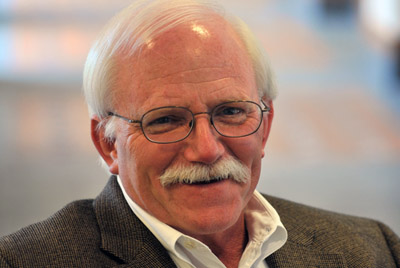Obama’s right, higher education should be available to all
President Obama’s proposal to make community college tuition free for millions of Americans is expected to be front and center when he delivers his State of the Union address Tuesday evening. It is an issue that should resonate here in Michigan given the unique role our state has played in pioneering universal access to higher education.
2015 marks the tenth anniversary of the ground-breaking Kalamazoo Promise, the nation’s first universal, placed-based scholarship program. Graduates of that west Michigan community’s public schools are guaranteed scholarships that will cover the cost of tuition to any community college or state university in Michigan as well as to a number of private higher education institutions. Generous anonymous donors are footing the bill for those scholarships, but there is also a communitywide effort to make sure all students are prepared to make the most of this tremendous opportunity.
For the first time in our history, a sitting president has recognized we need to make a two year post-secondary degree as universally available as a high school diploma.
The Kalamazoo Promise inspired other communities across the country to create universal scholarships of their own. In 2009, Michigan became the first state to encourage the creation of local Promise programs through bipartisan legislation establishing Promise Zones in up to 10 communities. Today, eight of those designated communities are making community college tuition-free for all graduates of their local high schools. Several have created scholarships that can be used to attend four-year institutions as well.
These Michigan communities are motivated by the same economic reality that led to the President’s proposal ‒ a high school education no longer leads to a job that can support a family in a middle-class lifestyle. The kind of credential students will seek after high school includes everything from a technical certificate or journeyman’s card to an Ivy League PhD. A high school diploma should be a meaningful milestone on every student’s education journey, but it should no longer be any graduate’s final destination.
Today’s higher expectations
In the last century, as we moved from an agricultural to an industrial economy, high school graduation became the universal expectation of our education system. And with that expectation, high school was made free and accessible to all. Given the rapid pace of change in the 21st-Century economy, we can’t afford to spend decades sending students a confusing mixed message ‒ everyone needs education after high school but only those who can afford it are going to get it.
It is not just students of limited means who will suffer from that disconnect, we all will. Consider: 65 percent of the jobs in the United States will require education beyond high school by the end of this decade, but today fewer than 40 percent of Americans have post-secondary degrees. In Michigan, the situation is even worse. Only 38 percent of our residents have earned at least an associates degree. If we allow a skills and education gap of that magnitude to continue we will all pay the price in the form of slower economic growth and ever greater social inequality.
Given the atmosphere that now prevails in Washington, the odds are against the President’s plan becoming law anytime soon. But that political calculus is hardly the best way to measure its importance. Instead, we should see this as the watershed moment that it is. For the first time in our history, a sitting president has recognized we need to make a two year post-secondary degree as universally available as a high school diploma became in what we (non-coincidentally) called the American Century. If President Obama does not achieve that goal in his remaining two years in office, a future American president almost certainly will.
In the meantime, the work of expanding higher education opportunity at the community level will go forward in Michigan and in other states. In addition to Kalamazoo and the Michigan Promise Zone communities many school districts in our state are creating early college high schools that allow students to earn associate degrees tuition free along with their high school diplomas. The community leaders doing the hard work these innovative strategies require are steadily building the better educated Michigan we all desire.
An expanded federal role like the one the President is proposing won’t take the place of these community-based efforts, it will only enhance them. There’s plenty of room for involvement at the federal, state and local levels and for the private and nonprofit sectors. The challenge of providing universal access to a college education will remain a daunting one. But now, more than ever, it should be clear it is the right challenge for our communities and our country.
See what new members are saying about why they donated to Bridge Michigan:
- “In order for this information to be accurate and unbiased it must be underwritten by its readers, not by special interests.” - Larry S.
- “Not many other media sources report on the topics Bridge does.” - Susan B.
- “Your journalism is outstanding and rare these days.” - Mark S.
If you want to ensure the future of nonpartisan, nonprofit Michigan journalism, please become a member today. You, too, will be asked why you donated and maybe we'll feature your quote next time!


 Chuck Wilbur works with the Michigan Promise Zones as a Senior Policy Consultant at Public Policy Associates. He helped develop the Promise Zones concept and legislation as an education policy advisor to Gov. Jennifer Granholm.
Chuck Wilbur works with the Michigan Promise Zones as a Senior Policy Consultant at Public Policy Associates. He helped develop the Promise Zones concept and legislation as an education policy advisor to Gov. Jennifer Granholm.